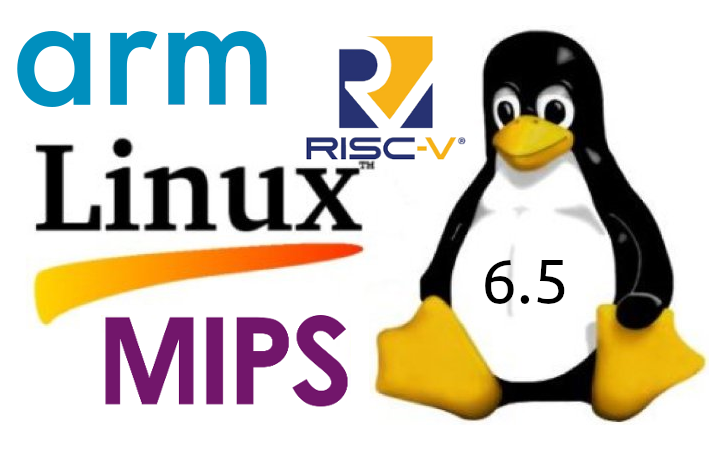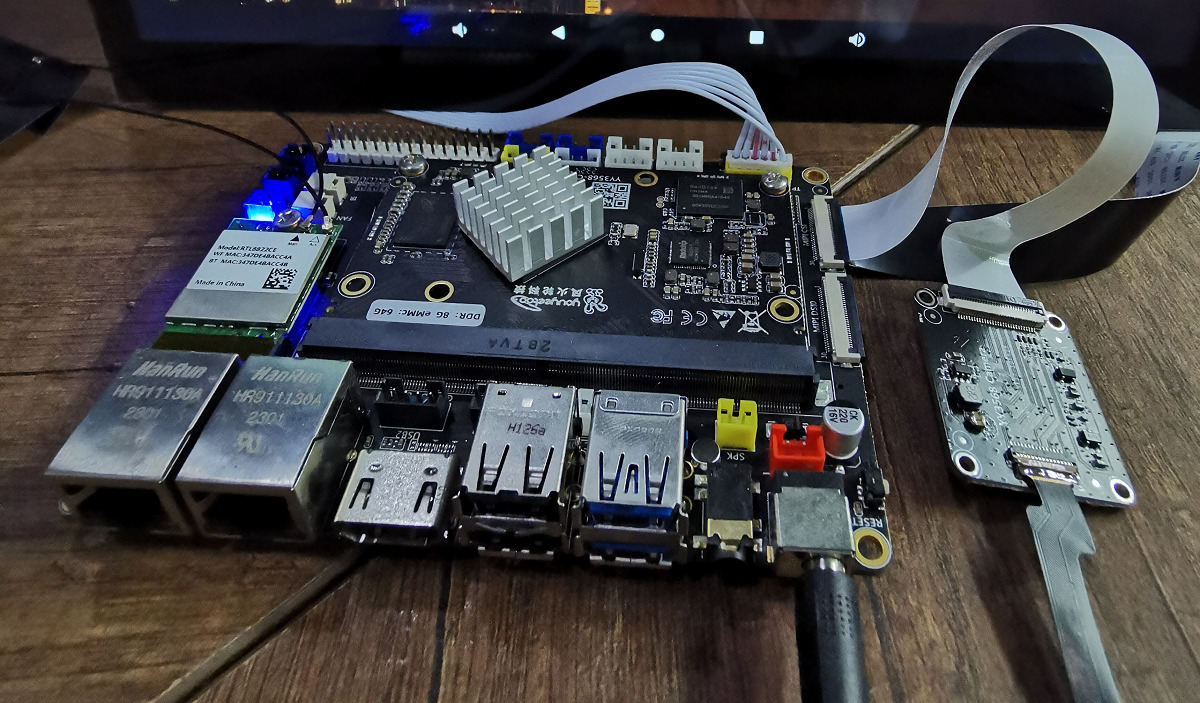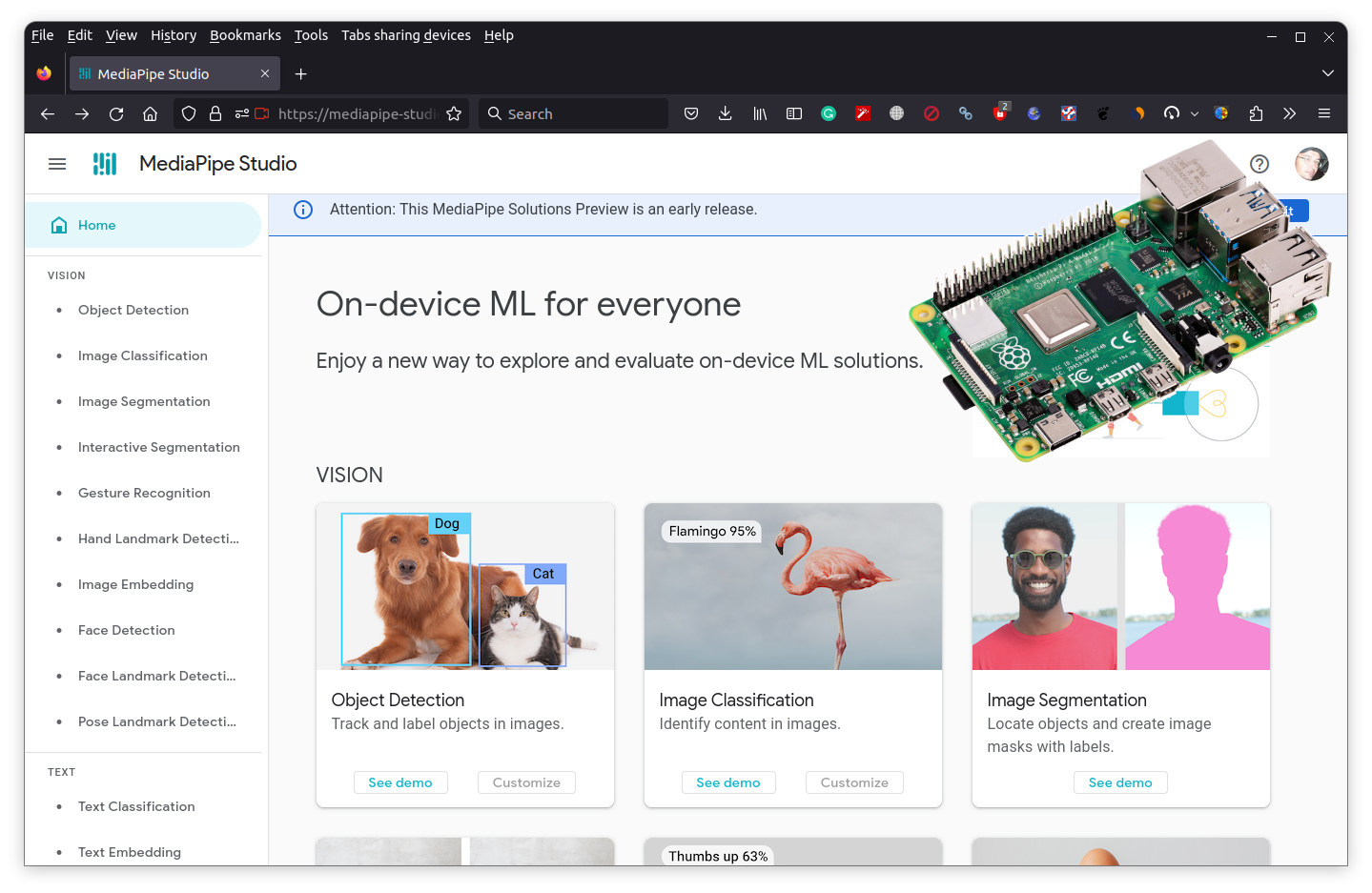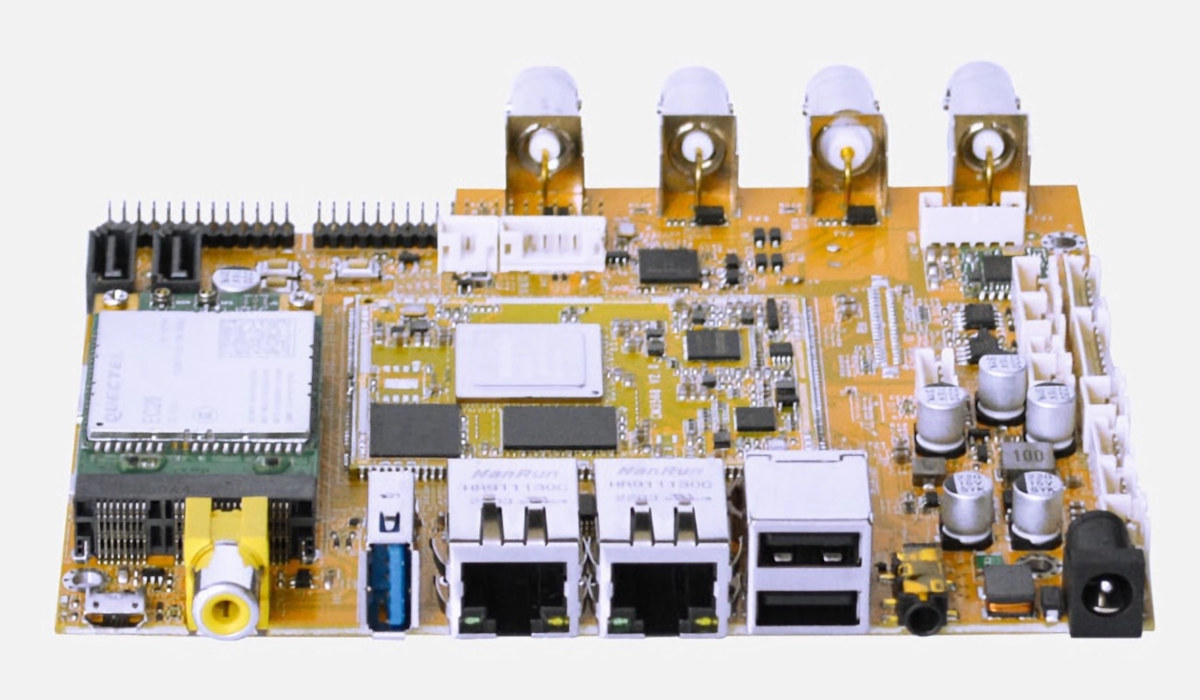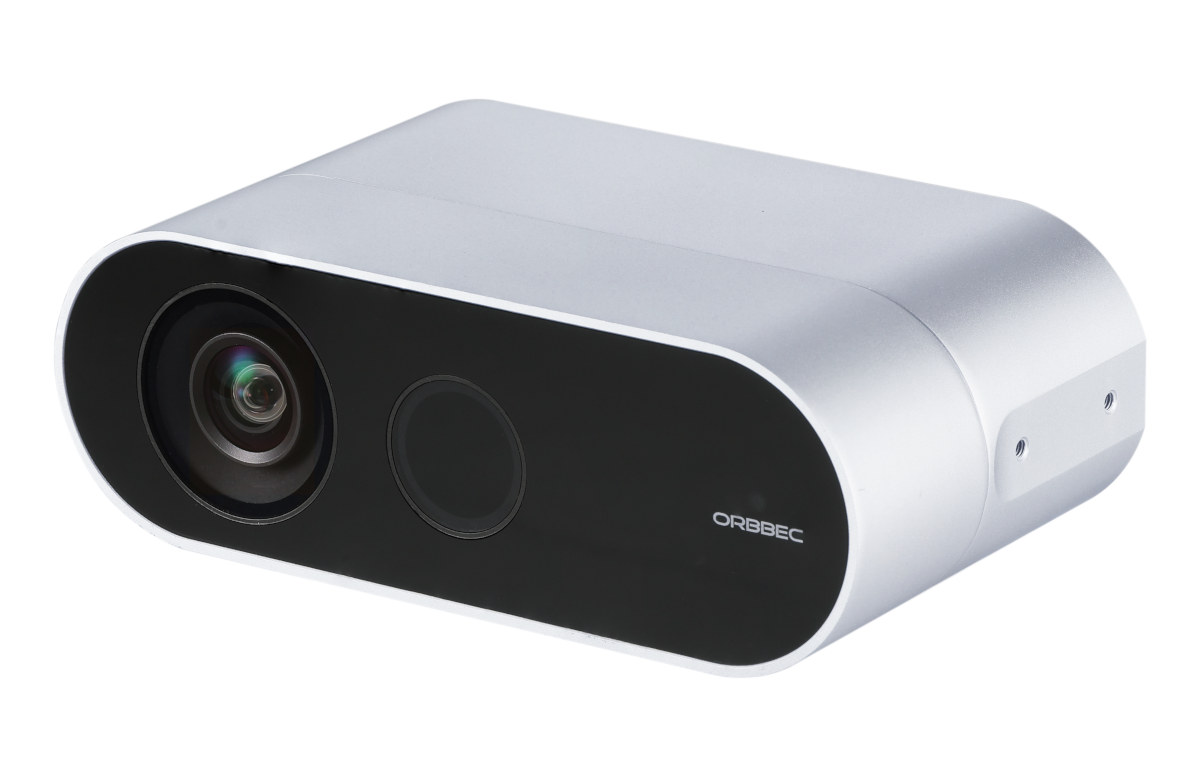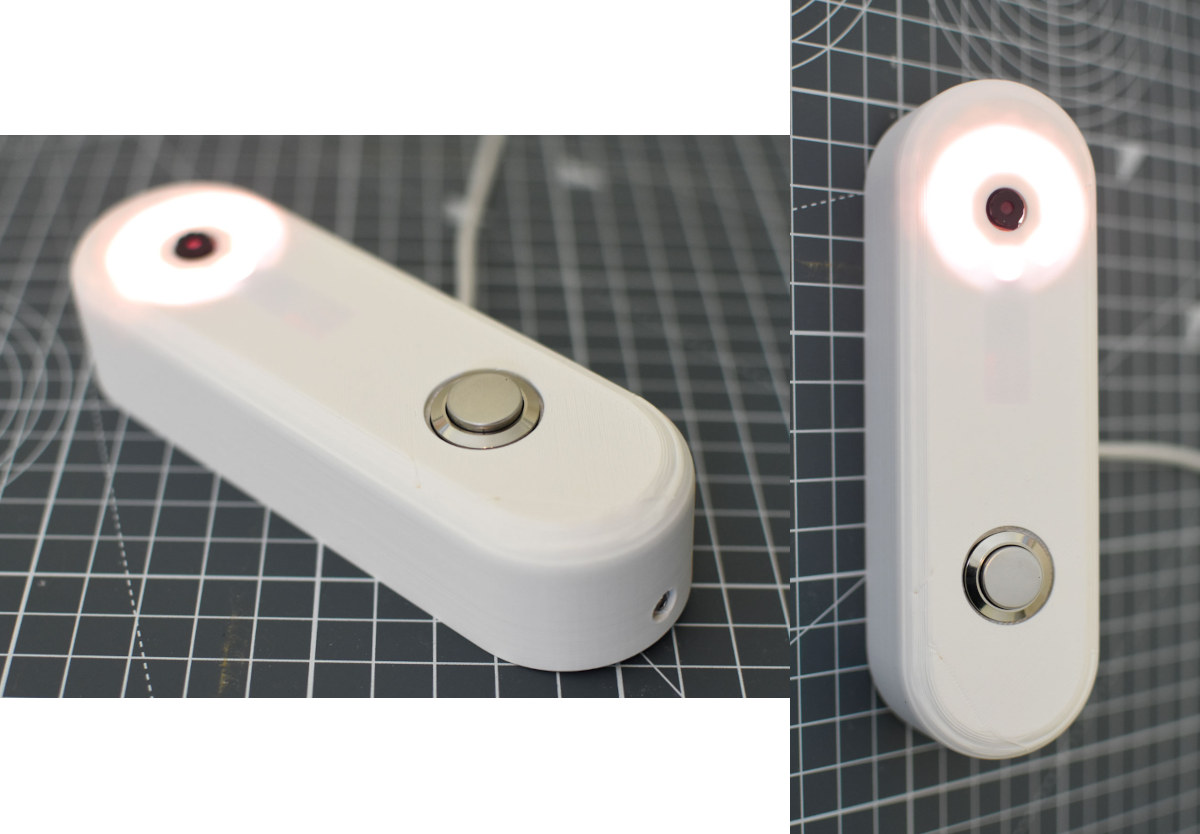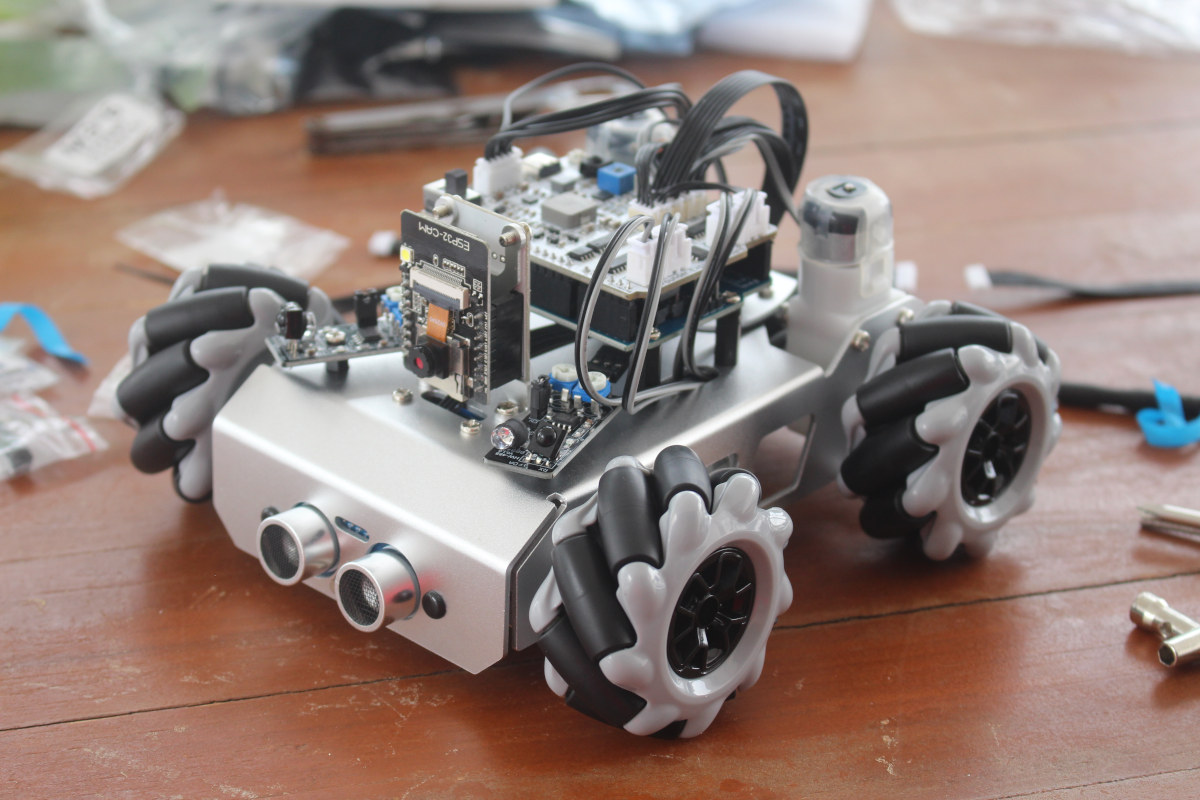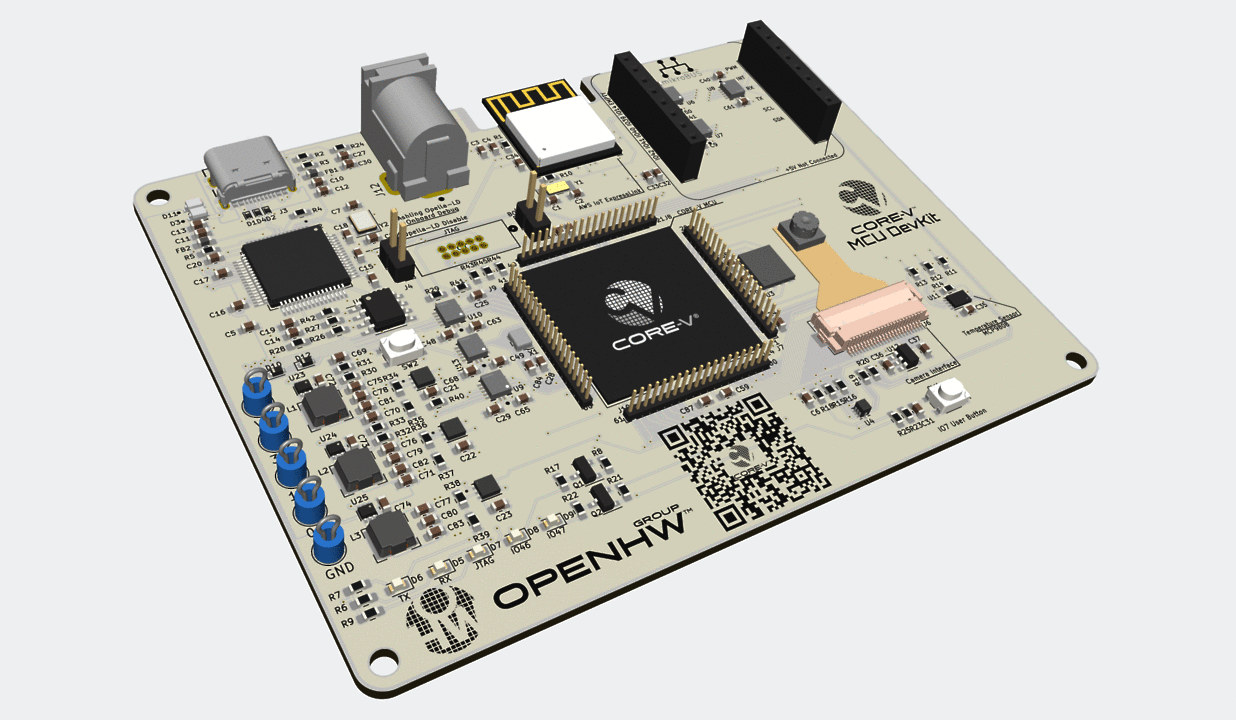Linus Torvalds has just announced the release of Linux 6.5 on the Linux Kernel Mailing List (LKML): So nothing particularly odd or scary happened this last week, so there is no excuse to delay the 6.5 release. I still have this nagging feeling that a lot of people are on vacation and that things have been quiet partly due to that. But this release has been going smoothly, so that’s probably just me being paranoid. The biggest patches this last week were literally just to our selftests. The shortlog below is obviously not the 6.5 release log, it’s purely just the last week since rc7. Anyway, this obviously means that the merge window for 6.6 starts tomorrow. I already have ~20 pull requests pending and ready to go, but before we start the next merge frenzy, please give this final release one last round of testing, ok? Linus The earlier […]
Youyeetoo YY3568 devkit review – Part 1: Unboxing, specifications, and Android 11 testing
Youyeetoo has sent us a review sample of their YY3568 “Bundle 5” devkit with the Rockchip RK3568-powered YY3568 SBC, an 11.6-inch touchscreen display, a MIPI camera module, and all accessories required to get started. We were especially interested in using it to play with the 1 TOPS NPU in the Rockchip RK3568 in Linux, but we’ll start the Youyeetoo YY3568 review with an unboxing, some specifications, and a quick review with Android 11 before switching to Debian 10 in the second part of the review. Youyeetoo YY3568 devkit unboxing The YY3568 single board computer itself is comprised of a carrier board and a YY3568-Core board with a Rockchip RK3568 processor, as well as 8GB RAM, 64GB eMMC flash, and WiFi 5 and Bluetooth 5.0 module. The board is suitable for various applications from generic computing to video playback and AI workloads. YY3568 SBC specifications and hardware overview Youyeetoo YY3568 board […]
MediaPipe for Raspberry Pi released – No-code/low-code on-device machine learning solutions
Google has just released MediaPipe Solutions for no-code/low-code on-device machine learning for the Raspberry Pi (and an iOS SDK) following the official release in May for Android, web, and Python, but it’s been years in the making as we first wrote about the MediaPipe project back in December 2019. The Raspberry Pi port is an update to the Python SDK and supports audio classification, face landmark detection, object detection, and various natural language processing tasks. MediaPipe Solutions consists of three components: MediaPipe Tasks (low-code) to create and deploy custom end-to-end ML solution pipelines using cross-platform APIs and libraries MediaPipe Model Maker (low-code) to create custom ML models MediaPipe Studio (no-code) webpage to create, evaluate, debug, benchmark, prototype, and deploy production-level solutions. You can try it out directly in your web browser at least on PC and I could quickly test the object detection on Ubuntu 22.04. MediaPipe Tasks can be […]
Rockchip RK3568 SBC takes up to four AHD cameras, two SATA drives
Boardcon EM3568-AV CAM SBC is powered by a Rockchip RK3568 SoC and comes with four AHD (analog high-definition) camera connectors and two SATA 3.0 ports to store video data on hard drives. The SBC is also equipped with up to 8GB RAM, up to 128GB eMMC flash, supports MIPI DSI, LVDS, and eDP displays, and features a video composite output, two Gigabit Ethernet ports, WIFi 4 connectivity, an optional 4G LTE module, a few USB ports, and several connectors for expansion. Boardcon EM3568-AV CAM specifications: SoC – Rockchip RK3568 CPU – Quad-core Cortex-A55 processor @ up to 2.0 GHz GPU – Arm Mali-G52 2EE GPU with support for OpenGL ES 1.1/2.0/3.2, OpenCL 2.0, Vulkan 1.1 AI accelerator – 1 TOPS NPU (probably rounded up from 0.8 TOPS) VPU – 4Kp60 H.265/H.264/VP9 video decoding, and 1080p60 H.265/H.264 video encoding System Memory – 2GB (up to 8GB) Storage 8GB eMMC flash (up […]
Orbbec Femto Bolt 3D depth and RGB USB-C camera supports Microsoft ToF technology
Orbbec Femto Bolt is a 3D depth and RGB USB-C camera developed in collaboration with Microsoft and integrating the same ToF (Time-of-Flight) technology as found in the Microsoft Azure Kinect camera module and HoloLens 2 mixed reality head-mounted display. The new model follows the launch of the fully integrated Femto Mega featuring an NVIDIA Jetson Nano module introduced in January with the same ToF technology, so the new USB-C camera simply allows a wider selection of hosts. Orbbec has also launched the Femto Mega I variant with an IP65 metal enclosure. Orbbec Femto Bolt specifications: Cameras Depth camera 1 Mega Pixel ToF sensor 850nm wavelength 0.25 to 5.45m range depending on the depth mode Up to 1024×1024 @ 15 fps (WFoV) or 640×579 @ 30 fps (NFoV) FoV Wide – H: 120°; V: 120° Narrow – H: 75°; V: 65° RGB camera 4K resolution up to 3840×2160 @ 25 fps […]
Privacy-focused DIY video doorbell leverages ESP32-CAM board, ESPHome firmware, Home Assistant
Seeing the lack of privacy-focused video doorbells on the market, Tristam (aka ThatGuy) decided to design his own doorbell with an ESP32-CAM board purchased from Amazon and flashed with ESPHome open-source firmware for easy integration with Home Assistant so there’s no need to rely on third-party cloud services. The DIY design also comes with other off-the-shelf parts with a momentary push button, a 10kΩ resistor, an RGB LED ring light, M2.5 brass inserts and screws, and a 10-meter micro USB cable all of which can be purchased from Amazon or another shop. He also needed eSUN white PETG filament to 3D print the custom plastic enclosure. The assembly requires two wires to the push button for 3.3V and GPIO 14 pulled to the ground with the 10k Ohm resistor and three wires to the RGB LED ring (5V, GND, GPIO15). Tristam notes the RGB LED ring is optional, and the […]
SunFounder Zeus Car Kit review – A fun toy and Arduino learning tool
SunFounder Zeus Car Kit is an Arduino UNO and ESP32 Cam-based educational kit for children (and adults) that can be used to learn more about electronics, robotics, and programming. It’s a car comprised of four 6cm Mecanum wheels for omnidirectional motion and various sensors that can be controlled with an Android app enabling first-person view (FPV) thanks to the built-in camera. The company sent us a Zeus Car Kit for review and evaluation, and after assembly, we’ll use it in “Play Mode”, or in other words a toy that basically works out of the box, before checking out the “Programing Mode” and related Arduino tutorials to evaluate it’s educational potential. Zeus Car Kit Unboxing The kit comes in a nice retail package which highlights some of the capacities of the kit: FPV, Omnidrive, AI vision, compass, IR control, APP control, and RGB lights. The package itself contains four more boxes […]
CORE-V MCU Devkit features open-source 32-bit RISC-V core, Amazon AWS IoT connectivity, Mikrobus expansion, VGA camera
The CORE-V MCU DevKit is an open-source hardware board based on the CORE-V microcontroller featuring the open-source OpenHW CV32E40P0 RISC-V MCU core and a Quicklogic ArticPro 2 eFPGA. The board offers wireless connectivity to Amazon AWS through an ESP32-C3 AWS IoT ExpressLink module, a MikroBus connector for expansion, a VGA camera module, JTAG and serial debugging, as well as a temperature sensor and a few buttons. The development kit can be powered by its USB Type-C port (5V) or a DC jack taking 5V to 18V DC. CORE-V MCU devkit specifications: Microcontroller – CORE-V MCU OpenHW CV32E40P RISC-V processor core (in-order 4-stage RISC-V RV32IMFCXpulp CPU based on RI5CY from PULP-Platform) with 512KB SRAM, boot ROM Quicklogic ArticPro 2 eFPGA Storage – 4MB QSPI flash Wireless – Espressif AWS IoT ExpressLink Module for AWS IoT cloud interconnect Camera – Himax HM01B0 ultra-low-power QVGA (320×240) CMOS image sensor as found in the […]


